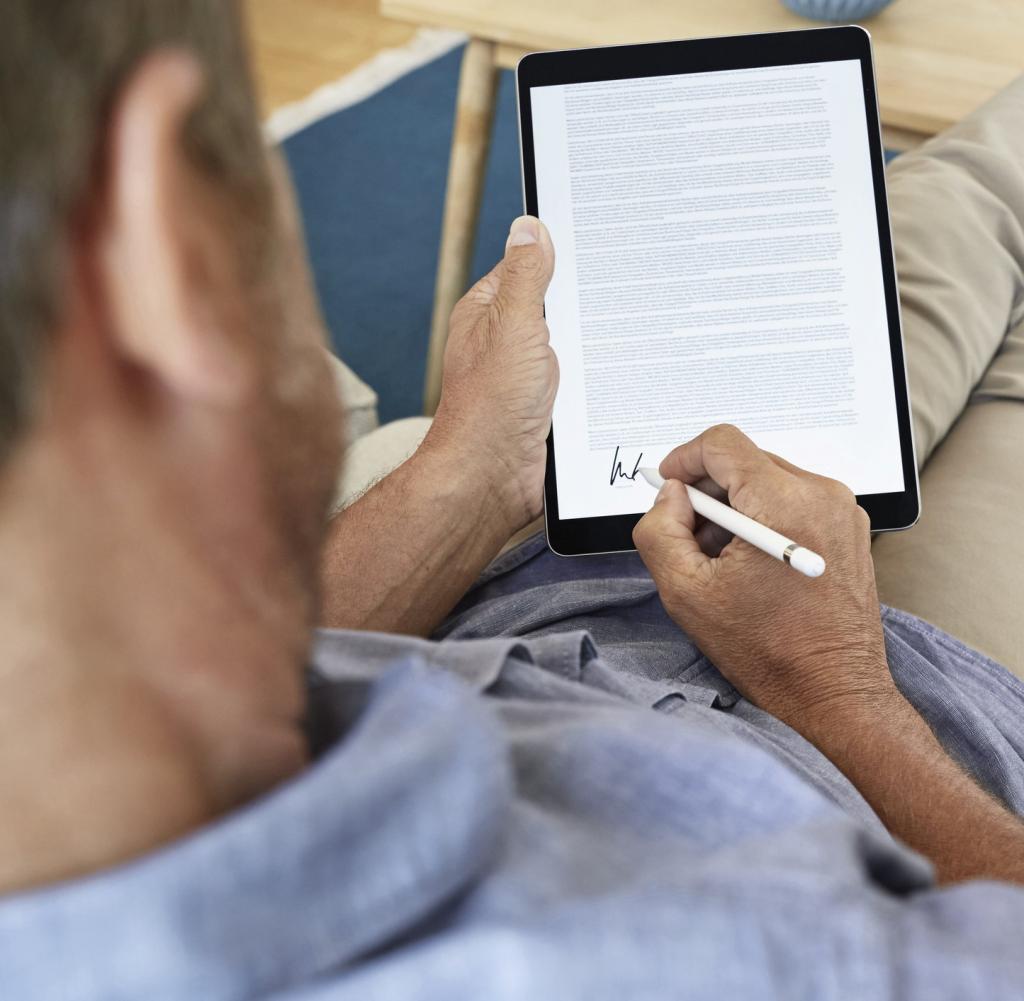How holding your pen can provide information about your risk of Alzheimer’s disease


The way you write or draw can provide information about the cognitive state of your mind
Source: Unsplash.de/Lilartsy
Alzheimer’s disease is the most common form of dementia and is currently incurable. However, if the neurological disorder is diagnosed early, treatments can ease the cycle. Researchers have now realized a revolutionary method for early diagnosis.
B75 percent of all dementia patients are not diagnosed as such – according to neurologists at the University of Tsukuba in Japan. An incurable brain disorder is tricky: In the most common form of Alzheimer’s disease, nerve cells in the brain gradually die off. As a result, sufferers become more forgetful, confused, and disoriented.
If dementia can be detected at an early stage, it is at least slightly better to slow down the deterioration of neurons and counteract its deterioration with appropriate treatments. So researchers around the world are working to develop more accurate diagnostic options for the disease.
One of them can be a writing and drawing test, such as Japanese medical professionals University of Tsukuba found in a study. They examined 92 participants aged between 65 and 98 years from the USA and Japan. They published their findings in the journal.JMIR Formative Research“.
Simple writing and drawing test can provide information about the cognitive abilities of the brain
Based on the results of previous studies, doctors suspect that there may be a link between the way people draw and possible cognitive decline, explains study leader Professor Tetsuaki Arai in press release. However, so far, most of the tests have been limited to a few tasks and are inaccurate. Therefore, Professor Arai and colleagues set out to develop a more accurate diagnostic graphic test.
Although it is clear that movement and pause-related personality features can be used to detect cognitive impairment, most screening tests remain relatively imprecise.
The researchers performed the test using a tablet
Source: Getty Images / Westend61
This is how the Alzheimer’s test went
In the newly developed test, 92 individuals were asked to complete complex drawing and writing tasks on a tablet. The researchers analyzed 22 different properties of their drawing technique: such as the pressure the pen is held and the pressure of the pen on the writing surface, the number of pauses when drawing, how the pen is held, as well as the speed at which they are drawing. In addition, participants had to complete an already recognized test to diagnose dementia, the so-called Montreal Cognitive Assessment.
The results were then fed into an AI machine learning model to create a scale between ‘normal cognition’, ‘moderate cognitive impairment’ and ‘Alzheimer’s disease’. Therefore, the assessment of the potential risk of Alzheimer’s disease depends on many factors and can only be definitively clarified by a specialist.
The diagnosis of Alzheimer’s disease in its early stages is not always clear
Credit: Getty Images / MoMo Productions
Analysis of the results showed that people with a lower cognitive index on the scale showed greater variance in drawing speed and the way they held the pen. They also took more breaks from drawing. The differences between people with mild cognitive impairment and Alzheimer’s patients were greater than between people with normal cognitive impairment and those with mild impairment. This may indicate that the test can be used as an early warning sign to diagnose Alzheimer’s disease.
Will an online test to diagnose dementia be possible in the future?
The researchers noted that the study included a relatively small number of participants. However, the results are quite startling and will provide clear indications, the researchers wrote in their study. You can even imagine that some kind of online self-assessment can be generated using the results.
To do this, however, a program must first be developed that collects data from these test results anonymously, and thus can provide long-term information about the course of the disease—and thus improve the quality of life for future Alzheimer’s patients due to their disease detected earlier.
Adequate exercise and social contacts can slow the progression of dementia
Source: Getty Images / Westend61
Researchers are still searching for a cure for Alzheimer’s disease. However, people should really focus on avoiding risk factors for potential dementia. A general healthy lifestyle and diet, social mobility i.e. meeting other people, and adequate exercise are essential help.
In addition to the way you write and draw, looking into your eyes can also help identify dementia early:

“Total coffee aficionado. Travel buff. Music ninja. Bacon nerd. Beeraholic.”













More Stories
Coral Seeding: Artificial Insemination Makes Coral More Heat Tolerant
Fear, Anger, and Denial: How People Respond to Climate Change – Research
LKH Graz: Using radiation to combat heart arrhythmias